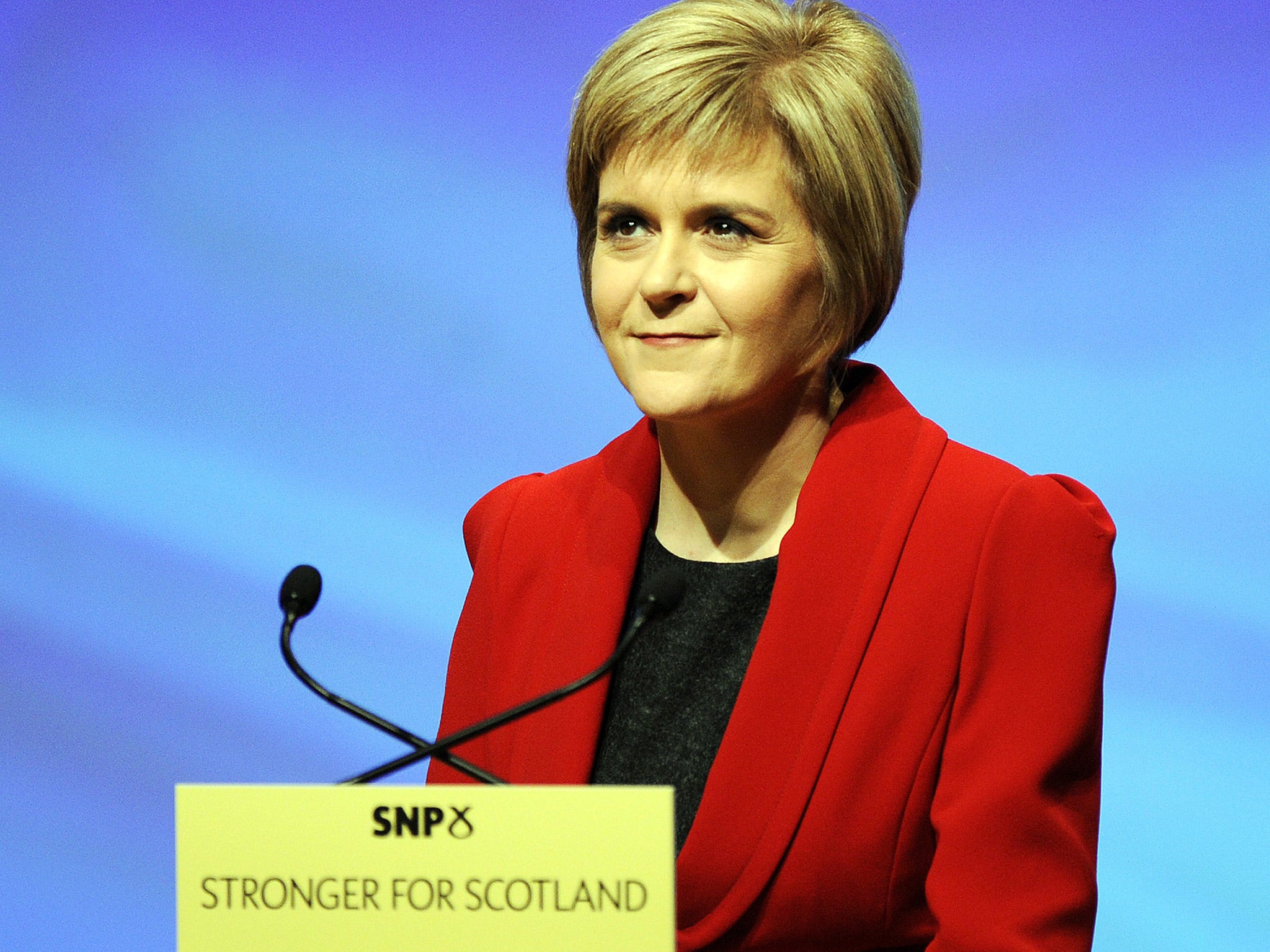Sturgeon’s U-turn on voting on English matters spells disaster for Ed Miliband
Labour is paying the price for falling out of love with England

Some big questions loom about the Labour Party at this coming election. Under Ed Miliband’s leadership, the party has failed to establish any form of convincing lead over the Conservative Party, and Labour MPs are becoming consistently disillusioned with the party’s strategy and direction.
That’s why Nicola Sturgeon’s announcement that in spite of previous statements she would indeed vote on English matters in the House of Commons is so unnerving for Ed and his team.
He’s already got a major problem with English voters, as we know. The Labour Party became, from 1997 to 2010, increasingly reliant on its elected Scottish MPs. Now that it looks like the SNP may take a huge swathe of seats away from Labour in Scotland, Mr Miliband’s team will be gearing up for a Labour-SNP coalition – but he won’t be able to achieve it without showing English voters that he does in fact believe that they matter too.
After the Scottish referendum, I wrote to Scottish MPs, the SNP included, seeking reassurances that given the result of the referendum, and the feeling of unease amongst the English voting public, that they would not seek to vote on English laws. In fact a few of them wrote back and agreed that it wouldn’t be appropriate.
So yesterday’s announcement by Nicola Sturgeon, that indeed they now will vote on English matters, despite English MPs not having as much of a say on Scottish matters, marks a significant U-turn for the party – and one that I think it designed specifically to infuriate and enrage the English public. It’s the sort of divisive politics we’ve long come to expect from nationalist parties – and it beggars belief that few people saw this coming.
Mostly however, in party political terms, this affects Mr Miliband. The further north you go in England – indeed the further into Labour’s traditional “heartlands” – the deeper the resentment feels towards the fact that the English don’t have as much of a say as their Scottish counterparts, and that the Barnett formula leves them disadvantaged. The Scottish referendum brought this to the fore of English voters’ minds. It’s a shame that none of the other parties apart from Ukip registered these concerns.
Mr Miliband’s party, we know, has problems with those who identify as English. The Heywood and Middleton by-election, where Ukip came an incredibly close second to Labour, highlighted this. Labour’s fallen out of love with England, and in turn, England is falling out of love with Labour. Mr Miliband would have been deposed as leader of his party, had just a few hundred more votes swung to Ukip. This could have triggered the bloodiest battle for the Labour Party leadership this country has ever seen. Was Mr Miliband embarrassed by this? You bet he was.
And yet nothing was done to clamp down on the anti-English sentiment emanating from Labour’s hierarchy. In Rochester and Strood – in fact in Strood specifically – this recent feature of New Labour reared its ugly head again.
Whether she meant what we all think she meant or not, Emily Thornberry’s tweet about the Cross of St. George and the white van was construed by most as pure metropolitan contempt for Englishness. People will have naturally asked themselves the question: “Would she have tweeted that if it were a Saltire, or the Welsh flag?”
The answer is probably not. And this brings us back to the point: Nicola Sturgeon’s announcement yesterday spells very bad news for Mr Miliband. When will Ed speak for the English? Your guess is as good as mine. If Labour’s recent adverts are anything to go by – not soon. They’ve begun to spell words the American way, presumably because of their expensive American advisers. Still – it doesn’t bode well for the party’s attempts to connect with the people of this country, does it?
Cameron doesn't understand youth engagement
This week I attended a hustings in Thanet South, where you may well be aware by now, that I’m standing for Parliament. One of the questions from the audience really stuck in my mind: How do we encourage more youth voters?
I said that no matter whether people are voting Ukip or not, I have a feeling that Ukip’s shaking up of the political establishment would spur people onto becoming more involved. With us or against us, I’m all for the increased involvement of the public in our politics. That’s why Ukip is greatly in favour of direct democracy.
The Tory candidate standing against me, Craig Mackinlay, offered some words about trying to get more youth engagement too. But it doesn’t bode well when just weeks ago, his party leader pulled out of a young persons’ voter-engagement debate called “Bite the Ballot”.
I took a grilling from the panel of students and young people, as did every other party leader. But Mr Cameron showed deep disdain for young voters by refusing to take part. While it’s fair to say I didn’t have the easiest of times on the programme, I do have to say that it does some excellent work in getting young people interested in politics, and the Tories and their government would do well to recognise this.
Join our commenting forum
Join thought-provoking conversations, follow other Independent readers and see their replies
Comments
Bookmark popover
Removed from bookmarks